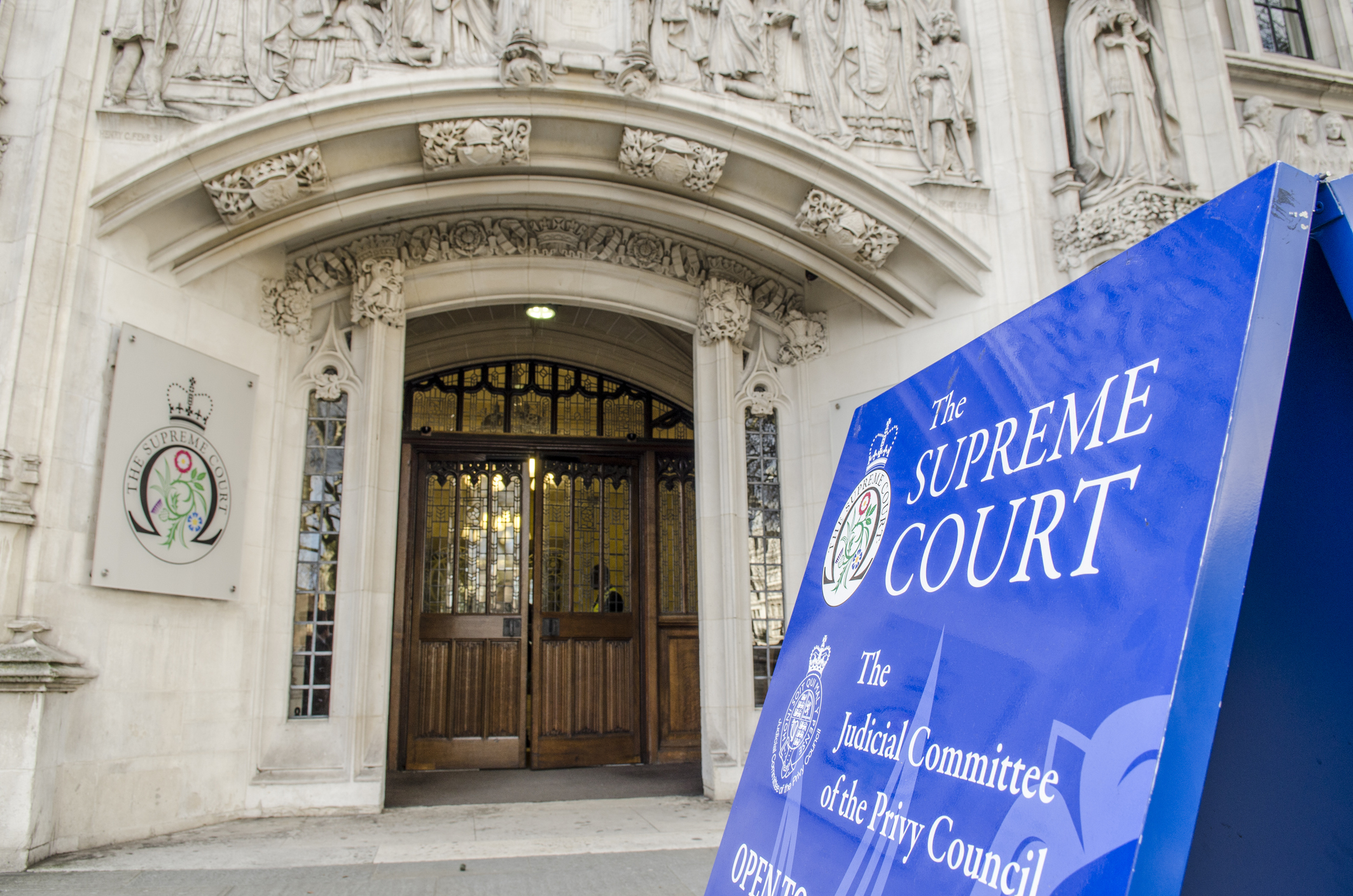Info Hub
- Adoption
- Alternatives to Court
- Arrangements for Children
- Brand Protection
- Brexit
- Business Disputes
- Business Law
- Buying and Selling Your Home
- COVID-19
- Charities
- Child Abduction
- Children
- Children in Care
- Cohabitation
- Commercial Property
- Community News and Giving Back
- Construction
- Corporate and Commercial
- Data Protection
- Disputes with Businesses
- Divorce and Separation
- Domestic Abuse
- Employee Ownership
- Employment and HR
- Energy
- Family
- Finances Following Divorce and Separation
- Finances for Children
- Food and Drink
- Healthcare
- High Net Worth
- Holiday and Residential Parks
- Immigration
- InSync
- Inheritance and Trust Disputes
- Insolvency and Bankruptcy
- Intellectual Property
- International Divorce
- Landlord and Tenancy Disputes
- Leisure and Tourism
- Marine
- Mining, Minerals and Waste
- Money
- Personal Disputes
- Planning
- Pre and Post Nuptial Agreements
- Property Disputes
- Public Sector
- Real Estate
- Recruitment and Careers
- Regulatory Compliance and Enforcement
- Residential Property
- Rural
- Social Housing
- Stephens Scown News
- Technology
- Unmarried Couples
- Wealth Protection and Planning for Later Life
- Wills and Inheritance Planning
Info Hub Latest Articles
View AllInfo Hub Video Lounge
View AllInfo Hub Top FAQs
Business
View all business FAQs-
An employee who is returning to work on a phased basis may have been absent for some time and employers are understandably nervous of the possibility of any disability discrimination issues. Pay arrangements in this situation will probably not have been expressly agreed between the parties in the employee’s contract and will therefore need to be agreed and clearly set out at the point of the employee returning to work. It is unlikely that an employer would be contractually obliged to pay an employee returning on a phased basis full pay if they are not working all of their contractual hours. It is also rare that doing so would be a reasonable adjustment in the event that the employee has a disability. We would recommend that the parties should agree a pro rata rate of pay for the work actually done. Remember that a day on which any work is done will not count as a sick day for statutory sick pay purposes and so that could not be used to top up the employee’s pay. If there is a right to contractual sick pay, you will need to consider if there are any terms about whether that right continues during a phased return on any non-working days but remember that the overall aim is to help an employee return to work and if an employee could earn more by being at home sick than coming back to work on a phased return basis, cutting that pay is unlikely to encourage them
-
Every case is different, and the outcome will depend on the specific facts. When dividing assets on divorce, the Court is obliged to apply the factors set out in Section 25 of the Matrimonial Causes Act 1973, which includes needs, resources, contributions, the length of the marriage, obligations (such as independent children) the ages of the parties, and so on. The Court must apply these principles to achieve fairness to avoid discrimination, and should consider an equal division of the assets. In applying the Section 25 factors, if there is not to be an equal division, then there must be justification for this. In the past, farmer’s wives often did relatively badly on divorce. Since the well-known case of White v White (2000) the legal landscape has changed. Mrs White, with her husband, was an equal partner in a farming business that they had built up together over a life time of work. She was not prepared to settle for an arrangement which was designed to meet only her “reasonable needs” and for the farming assets to be transferred to her husband. This would have been the case before she went to The House of Lords. Instead, Mrs White succeeded in establishing the principle that after a long marriage of full and equal contributions the assets should be broadly divided equally. Further, the Order in which the Court will broadly seek to divide assets will be in the order of needs, compensation (if applicable) and, if there is a surplus, sharing. Problems arise where there are unequal contributions by one party, or assets were pre-owned, or inherited. In these cases the Court will probably depart from an equal division. The best way to explain how this works in practice is to give some broad examples. Where the son is a partner in the farming business, but the land, house, and agricultural buildings are owned by the son’s parents, and are not therefore assets on the farming partnership balance sheet, then it is extremely unlikely that the farm will be lost. This is not to say that the partnership may not face challenges in raising capital to fund the wife’s needs, but a Court cannot make assets which do not belong to the son subject to a settlement on his wife. In a situation where the farm, land and buildings, the live and dead stock are balance sheets assets, but where the assets are not part of the matrimonial acquest, and have never been vested in the wife’s name, again, it is extremely unlikely that the Court would want to destroy the farm business. The son would have to consider funding` the wife’s settlement, either by borrowing or by looking at, for example, the sale of non-core assets such as redundant cottages or barns. The size of the wife’s claim would depend on all sorts of additional issues, such as whether the children will be staying with the son or living with the wife, the ages of the children, the liquidity of the farm and its profitability, the ages of the son and his wife, and the length of the marriage. Where a short marriage fails, and the son and his wife are relatively young and childless, then the size of the wife’s claim is going to be small. After a long marriage involving several children, particularly where the wife has not been able to establish her own career, then the size of her claim is going to be much larger. On the other hand, in a case where the husband and wife have used joint marital assets to fund the purchase and capital of the farm, and in particular where assets are vested in joint names, then there is a significant risk that the son may lose the farm on divorce, especially if the wife’s needs are large, if there is insufficient ability to raise adequate capital. There are also other unique factors which apply to farm businesses, and in a situation where a son is facing the break-up of his marriage, then it is imperative that expert advice is taken at an early stage so that options and timescales can be explored.
-
If you wish to mortgage, sell, grant a lease enter into an easement or transfer title following a business restructure then it will always be necessary to check title to the property. It is advantageous to have a registered title as if the title is unregistered then the title will need to be traced back. Sometimes there are as many as three or four generations of ownership to be investigated and often there are old conveyances, missing documents and poor quality plans. Missing documents and poor plans can cause serious delays in the completion of transactions. Registration can also avoid anyone else claiming ownership of your land. If anyone is trying to claim ownership of your land, this may be uncovered during the registration process. Clearly, if your land is not registered the Land Registry cannot warn you of anyone else trying to claim rights over your property. Registration of land can also resolve any boundary issues. If you wish to undertake voluntary registration of your land at the Land Registry a reduced fee will be payable. Anyone with doubts about how registration could impact on problems such as missing deeds or existing boundary disputes should seek legal advice.
-
Yes, but it depends on the type of charity and whether the property is owned in the charity’s name or by trustees on behalf of the charity. There are some specific requirements that apply in relation to buying land and other property most importantly the charity trustees must ensure that it is necessary and within their powers. There are more detailed rules that apply when a charity disposes of land. Generally, charity trustees are under an obligation to sell the land for the best available price unless there are special reasons to sell to somebody else. In certain circumstances Charity Commission consent will need to be obtained but usually, the obtaining of a surveyor’s report on price and marketing will enable trustees to go ahead without involving the Charity Commission. It may be prohibited to sell some land because it was originally set up to be used forever for that charity, known as permanent endowment. However, in certain cases it may be possible to ask the Charity Commission to use its powers to enable a sale of such permanent endowment to take place.
Personal
View all personal FAQs-
To some degree, the answer to this is, “it depends”. Anyone wanting to bring a claim in the Employment Tribunal must generally do so within three months of the date of dismissal/resignation or the act complained of (although there is some ability for that deadline to be extended in certain circumstances). Before you can submit a claim to the Employment Tribunal, you must contact ACAS and enter into Early Conciliation via th website form, which can then extend the deadline for submitting a claim. The standard Early Conciliation period, which can be used to see if your claim can be settled, lasts for one month and can be extended once by up to 14 days. Once the Early Conciliation period has been completed, you can submit your claim. The Employment Tribunal will serve it on your employer and unless an extension of time is agreed, they then have 28 days to respond. Thereafter, the timeline for your claim is subject to any case management orders which may be given. There are various stages to every claim including the exchanging of relevant documents, the preparation of a schedule of loss, the drafting of witness statements and, of course, the final hearing. A timetable will be set between the parties and in agreement with the Tribunal (usually at a preliminary hearing, which will often be by telephone) for each of these stages and penalties can be imposed for a failure to comply with the timetable. The listing of the final hearing will be subject to the workload of the Tribunal, the number and complexity of issues to be determined and the availability of witnesses but you could reasonably expect it to take six months to a year to get a hearing date. Judgment may be reserved following the hearing and may not be sent for another month or so, though it must be sent within a reasonable time. We have a wealth of experience within the team of advising employees on claims and representing them in the Employment Tribunal. If you are contemplating bringing a claim against your employer, it is important that you get advice as early as possible in the process so you can prepare fully and be in the best possible position to be successful. We would be happy to explore the different funding options with you.
-
Before 2002, a squatter could apply to be registered as the owner of land if they had been in adverse possession of the land for a minimum of 12 years. In 2002, the Land Registration Act was introduced. This Act only applies where the land is registered at the Land Registry (registered land) and the person in possession did not acquire 12 years possession of the land before 13 October 2003. Whilst the person in possession only needs to show 10 years adverse possession, on making an application to be registered as proprietor, the registered proprietor will be notified and given the opportunity to oppose the application. The process is therefore weighted in favour of the landowner. Where the land in question is unregistered land, or registered land where the possession relied upon is for a period of at least 12 years ending before 13 October 2003, the previous regime still applies.
-
Your ownership of the land is recorded with the Land Registry, providing you with a state-backed registration. The Land Registry hold an electronic up to date record of who owns the land. For more information and insights on real estate please visit our real estate info hub, alternatively please reach out to our experienced real estate team.
-
Deemed service of the divorce application can be sought if the applicant can prove that their spouse has received the application, but will not return the Acknowledgement of Service. The respondent spouse has 7 days to file the Acknowledgement, however the applicant should allow a reasonable amount of time to respond before applying for deemed service. The time this takes will depend on the court’s capacity and the availability of evidence to prove non-engagement of the responding spouse.
-
For divorces filed before the 1st April 2022, a Decree Absolute will be received upon finalisation of divorce. For divorces filed after 6th April 2022 a Final Order will be received upon finalisation of the divorce, these are the one and the same. A Final Order would not ordinarily be applied for until financial matters have been resolved, so how soon you apply for a Final Order will depend upon how swiftly a financial agreement is reached. The earliest you can apply for a Final Order is a statutory period of six weeks and a day after the pronouncement of the Conditional Order. Once the application for a Final Order has been filed with the Court, it is usually pronounced within a couple of days.
-
An Interim Care Order is an Order made by the Court which means that the Local Authority will share parental responsibility for your child with you. The Local Authority can then make appropriate provisions for the child even if these are contrary to the parents wishes. These interim orders are temporary measures designed to protect the children whilst a full and comprehensive investigation of the case is undertaken. It is not meant to pre-judge issues but rather is a neutral position. The order can last for up to 8 weeks to begin with, and can be renewed for 28 day periods after that.










